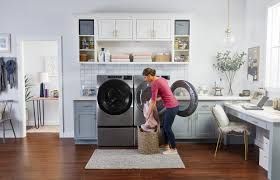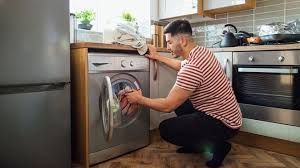Appliance SOS: Emergency Repair Techniques Every Household Should Master
Appliances are the hidden heroes of the contemporary home; they simplify our daily schedules and make difficult chores seem easy. These gadgets put up a lot of effort in the background to improve our comfort and convenience, from the brew of our reliable coffee makers in the morning to the toasty warmth of our heaters on chilly evenings.
Among these essential appliances, refrigerators watch after our food, making sure it stays fresh and lasts a long time. The enormous chore of turning our laundry heaps from filthy clothes into clean, fresh clothes is taken on bywashers and dryers. These appliances are dependable, yet they can nevertheless malfunction from time to time.
An item that stops working out of the blue might throw off our carefully scheduled routines, upsetting our daily routines and adding unnecessary worry and discomfort. Having a few repair tricks under your sleeve may help you tremendously in emergency situations like these by enabling you to take immediate action and get your house back in order.
This thorough guide takes us on a tour around the world of home appliances, including crucial emergency repair methods for some of the most typical problems. We can help with issues like a malfunctioning refrigerator, a washer that won't drain, or an oven that won't turn on. With these vital repair skills at your disposal, you'll be able to handle unforeseen malfunctions with assurance and comfort, taking back control of your home and saving money and trouble on expert repairs. Let's get started and acquire the skills and information need to become an expert in appliance repair.
Refrigerator Troubleshooting:
- Emergency: Refrigerator Not Cooling: In order to keep food from spoiling, you must take immediate action if your refrigerator stops chilling. To begin with, make sure the temperature settings are set appropriately by verifying them. To increase airflow and cooling effectiveness, clean the condenser coils next. Examine the evaporator fan for blockages or indications of damage if these fixes don't resolve the problem. When a refrigerator breaks down, moving perishable goods to a cooler with ice packs might help keep them fresh longer.
- Emergency: Refrigerator Leaking Water:If a leaking refrigerator is ignored, it may cause mold development and water damage. Check for leaks or loose connections in the water supply line first. Look for obstructions or clogs in the drain pan and drain tube if the supply line is undamaged. Use a vinegar and hot water combination or a pipe cleaner to remove any clogs. Make sure the refrigerator is level as well to avoid water collecting inside.
Washer and Dryer Quick Fixes:
- Emergency: Washer Won't Drain:Your home may sustain water damage and your clothing may become soggy due to a washer that refuses to empty. First, look for any kinks or blockages in the drain tube. Check the pump filter for foreign items or debris if the hose is clear. Check to check sure the washer drains correctly after clearing any obstacles. In case of an emergency, manually empty the washer by using a bucket or siphon to get rid of extra water.
- Emergency: Dryer Not Heating: An inoperable dryer has the potential to delay the drying of clothing and raise energy expenses. First, make sure there are no obstructions in the lint trap or exhaust vent. This is because inadequate airflow can lead to overheating and improper drying. If the vents are clear, use a multimeter to check the heating element's continuity. If the heating element has to be replaced, do it in accordance with the manufacturer's guidelines.
Stove and Oven Solutions:
- Emergency: Stove Burner Not Lighting: Meal preparation might be interrupted by a stove burner that won't ignite, leaving you to find other solutions. Prior to beginning any troubleshooting, make sure the gas supply valve is open and the burner cap and grate are positioned correctly. If the burner still won't ignite, take off the burner head and give it a good cleaning with a wire brush to get rid of any food residue or debris. Reassembly the burner and do another test.
- Emergency: Oven Not Heating: Dinner plans might go awry and irritation can result from an oven that refuses to heat. First, look for indications of wear or damage on the temperature sensor. Use a multimeter to check the sensor's continuity if it seems to be in good condition. If the sensor has to be replaced, do it in accordance with the manufacturer's recommendations. Furthermore, look for any obvious damage or flaws in the heating element and replace it if needed.
Dishwasher Dilemmas:
- Emergency: Dishwasher Not Draining: Standing water and unclean dishes might arise from a dishwasher that refuses to empty. Examine the drain pump and the drain hose for blockages or kinks, then start with those. Make sure the dishwasher drains correctly by testing it and clearing any obstructions. To improve drainage, inspect the dishwasher's filter and give it a thorough cleaning if the problem continues.
- Emergency: Dishwasher Leaking: Water damage to your kitchen cupboards and floor might result from a leaky dishwasher. First, look for any rips or cracks in the door gasket that could be letting water out. Make that the door is correctly aligned and shuts securely, and replace the gasket if needed. Replace any broken parts and furthermore look for leaks in the dishwasher's spray arms and seals.
Appliance Emergency Repairs
Emergencies can happen at any time, but you can confidently manage unplanned appliance malfunctions if you are prepared and have some information. You may save time, money, and frustration while maintaining the efficiency of your home by learning these crucial maintenance methods for common household equipment.
When doing repairs, always keep safety as your top priority. Your appliance manuals will provide safety instructions and precautions to follow. If you are uncomfortable performing repairs yourself or run into complicated problems, don't hesitate to call a professional.
By keeping up with routine appliance maintenance and repairs, you're strengthening the resilience of your house rather than merely solving issues as they come up. You can make sure that your home appliances continue to function dependably for many years to come, regardless of the difficulties that may occur, by being aware, ready, and in control.




